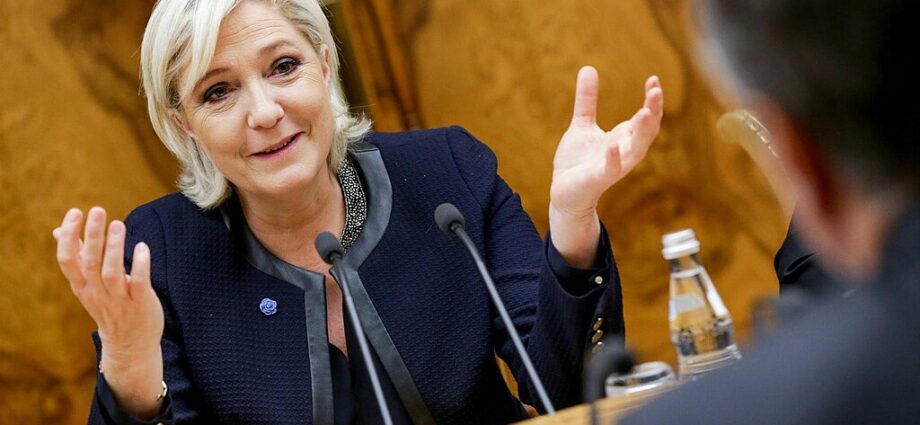
Far-right gains in the 2024 EU election highlight their rising influence, yet their fragmentation limits a unified challenge to the centre-right EPP.
By Valerio Alfonso Bruno, Catholic University of Sacred Heart, Milan
July 23, 2024
The recent European Parliament election delivered a clear message on Far-Right political parties, but the broader narrative is still taking shape.
According to some analysts, the improved performance of these parties will not put them at the centre of European politics, while for others it is an important confirmation that the balance in Brussels and Strasbourg is changing, along with in several member states.
While the increased vote will likely encourage populist parties, what is clear is that the European far-right landscape remains too fragmented at the continental level to leverage its numbers effectively.
These radical-right parties such as Rassemblement National in France (31.37 percent), Fratelli d’Italia in Italy (28.76 percent), and Alternative für Deutschland in Germany (15.9 percent), posted notable electoral gains.
However, these parties remain divided among various political groups at the EU level, such as the European Conservatives and Reformists (ECR) and Identity and Democracy (ID). They so far have failed to coalesce into a unified force capable of challenging the centre-right dominance of the European People’s Party.
According to the available data, the European People’s Party (EPP) “holds”, so will be among the winners of the election, increasing its share of MEPs of 14 seats, while the Socialists and Democrats (S&D) loses three seats.
The ECR, thanks to the performance of Italian PM Giorgia Meloni’s Fratelli d’Italia gained seven seats, while ID, due mainly to the crucial results of RN in France, gained nine seats. Significantly, two far-right parties, AfD and Fidesz, have gained 17 and 10 seats respectively, and are currently not part of any political group in the parliament.
Since the EU groups have not publicly settled on their next moves, it is possible that new alliances may be formed or difficult partners will be dropped.
It is especially unclear how some radical parties may come together.
The Rassemblement National’s 30 lawmakers make up the biggest party in the European Parliament as a whole. If they were to join the small group of the French Reconquest party, which is at odds with its own leader, that number may rise. They would probably control any far-right organisation; some think they may include Poland’s Law and Justice or Viktor Orban’s increasingly autocratic Fidesz.
The far right goes mainstream
The far right parties electoral performances cannot be the sole focus of political analysis, as is often the case.
Instead, it is important to recognise that, despite the more or less favourable outcomes at the polls, the current political trend increasingly concerns the creation of new illiberal dynamics both within EU member states and within the EU political system.
These dynamics work from within. In this regard, liberal democracies have lately been referred to as systems of governance with sufficient “antibodies” to deal with potential democratic backsliding or regression.
Core far-right ideology components are seeping into mainstream politics, with extreme viewpoints such as nativism, white supremacy, conspiracy theories, anti-Semitism, and Islamophobia becoming accepted as “normal”.
There’s a concern that in the upcoming years those components may serve as a breeding ground for violence stoked by radical right-wing organisations.
It is important to ask whether today’s liberal democracies are capable of identifying the more normalised aspects of right-wing extremism as alien and pathogenic.
The rise of far-right parties poses a challenge to liberal democracies as mainstream parties increasingly adopt more radical positions on issues like immigration, mirroring the stance of far-right groups.
It is also important to distinguish on a case-by-case basis, as each context and country has certain peculiarities.
In Italy, for example, the “far right” parties that are in government, (Fratelli d’Italia and to a lesser extent Matteo Salvini’s Lega), have followed a moderate path at the international level (think of Italy’s foreign policy its role in supporting Ukraine), while at the domestic level they prefer to deal with issues such as immigration and civil rights in a far more radical way, setting them up as “culture wars” to polarise public opinion.
The success of the diverse far-right movement highlights the growing difficulty in distinguishing between “institutional” politics and the slogan-driven politics seen in physical and digital public spaces.
The blurring of lines between previously disparate political themes has enabled far-right ideological tropes, such as conspiracy theories, racial superiority, and nativism, to infiltrateand become fully entrenched in mainstream political discourse.
What’s ahead in the EU?
Many European far-right parties have partially moved away from hardcore Euroscepticism, and now advocate a loosely confederal model of Europe, often referred to as a “Europe of nations,” reducing the influence of EU institutions over member states’ policies.
This stance appeals not only to populist radical-right and far-right parties but also to mainstream parties increasingly embracing this vision.
Across Europe, the centre-right appears resilient against the populist-radical right and far-right parties, although the European People’s Party (EPP) faces challenges not only from far-right parties but also from the temptation to align with their agenda on pivotal issues such as migration, amid concerns about losing public support.
Brussels currently seems cautious about forming a new alliance between the centre-right and far-right, yet future developments may trend in this direction.
Valerio Alfonso Bruno is Research Fellow at Università Cattolica del Sacro Cuore, where he collaborates with Polidemos (Center for the Study of Democracy and Political Change) and fellow at the Far-Right Analysis Network (FRAN). Bruno is a specialist on the Italian far-right and has recently contributed to the Routledge Handbook of Far-Right Extremism in Europe and the Handbook Non-Violent Extremism. Bruno recently co authored the book The Rise of the Radical Right in Italy: A New Balance of Power in the Right-wing Camp (with J.F. Downes and A. Scopelliti).
Subscribe to our newsletter.
Originally published under Creative Commons by 360info™.


